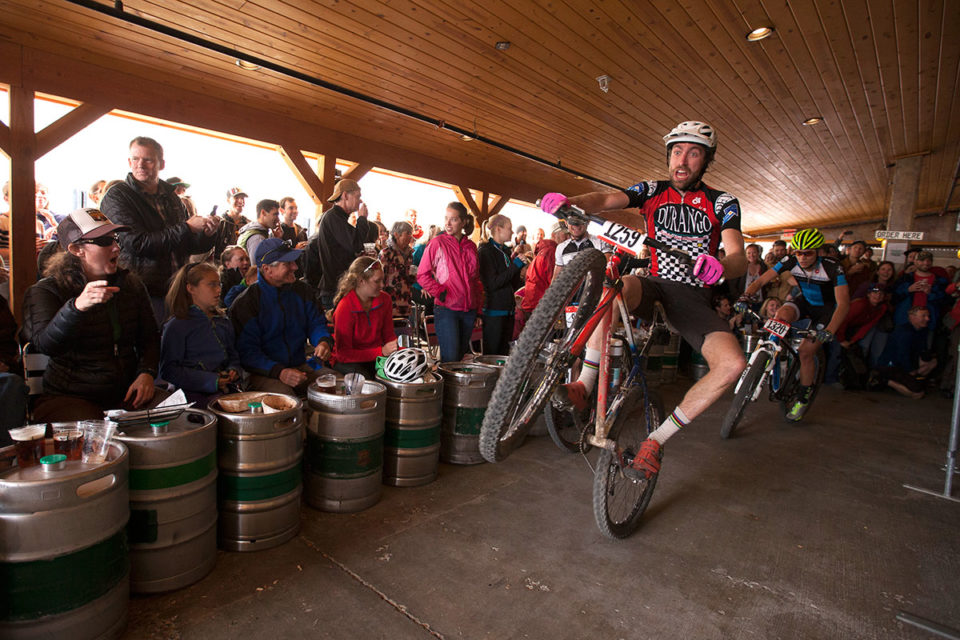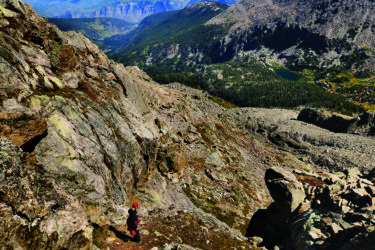The Local newsletter is your free, daily guide to life in Colorado. For locals, by locals.
Sometimes a dumb idea takes on a life of its own. Back in 1971, Tom Mayer was a cyclist living in Durango and his brother, Jim, was a brakeman on the steam-powered Denver and Rio Grande Western Railroad. Brothers being brothers, they couldn’t resist a little friendly competition; they decided to have Tom and his bike race Jim and the train nearly 50 miles from Durango to neighboring Silverton. The wager? A candy bar.
Tom won, and the following year, he and his friend Ed Zink, the owner of a local gear and cycling shop, founded the inaugural Iron Horse Bicycle Classic to allow others to attempt the feat. Over the next 50 years, the event would help transform Durango into one of the world’s premier biking destinations and a haven for competitive cyclists.

That first year, though, only five of the 36 racers beat the train, which meant hoofing it over two 10,000-foot-high mountain passes on a path that was five miles longer—and a whole lot steeper—than the train’s route. But it was fun enough that they decided to turn it into a regular thing each Memorial Day with Zink leading the way. Soon more events were added, including a race for the then-burgeoning discipline of mountain biking in 1984, which, until recently, saw participants ride through the Steamworks Brewing Company bar downtown to the delight of the spectators inside.
Ned Overend, a former professional mountain bike racer and five-time Iron Horse winner who has lived in Durango since 1980, thinks the event’s ability to adapt as the popularity of different cycling disciplines waxed and waned has been key to its continued success. Over the years, the Iron Horse has hosted everything from BMX races to spectator-friendly criteriums, a type of road racing that saw hordes of cyclists lap a short course around downtown Durango. “Very few [cycling] events are able to sustain themselves this long,” he says.

Thanks to his experience organizing the Iron Horse—and the national and international clout that came with it—Zink was able to help bring other world-class cycling events to town, including multiple mountain bike national championships and the inaugural Mountain Bike World Championships in 1990. Zink chaired the event’s organizing committee, and Overend won its inaugural cross-country race.
“That was a big deal. All the different countries that were into mountain biking sent their teams, and that brought huge international attention to Durango,” he says. Add in the national media coverage of all the races happening there and the cycling brands touting their racing prowess at those events through expensive advertising campaigns, and suddenly, southwest Colorado was the place to be if you were a cyclist.
Locals realized that they had lightning in a bottle, Overend says, and soon a cycling advocacy group now known as Durango Trails, was born. “It’s amazing how prolific that group has been at building trails and securing easements and rights of way around town,” he says.
Today, there are more than 300 miles of trail within 30 minutes of Durango, and the city has developed a winning pedigree on two wheels. The cycling team at Fort Lewis College won the first Collegiate Mountain Biking National Championships in 1994 and has gone on to earn 20 more national championships on both knobby tires and slicks. The area is also home to more cycling legends than just Overend, including Tour de France stage winner Sepp Kuss, Olympic racer Christopher Blevins, and downhill champion Missy Giove. But Zink is no longer among them. He died in 2019 at age 71.
Still, the Iron Horse race he championed remains at the heart of the scene it inspired. “Trying to get [to Silverton] faster than a steam engine train, that’s a great story, ” Overend says. “That intrigues people, and it brings in people who may not have much history of cycling.”
If you go: In addition to racing the train to Silverton, this year’s event (May 28 to 30) features 13 other rides and races ranging from a casual e-bike tour of the classic race route to a 55-mile gravel ride and childrens’ events. There will also be the return of two fat-tire derbies with throwback formats: the dual slalom and the Roostmaster, a jump-filled, made-for-TV competition that debuted at Iron Horse in the 1990s. Click here to learn more, see the schedule, check availability, and register for events.








